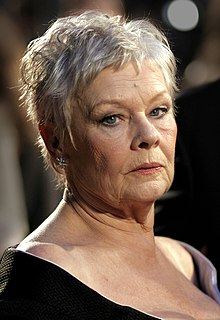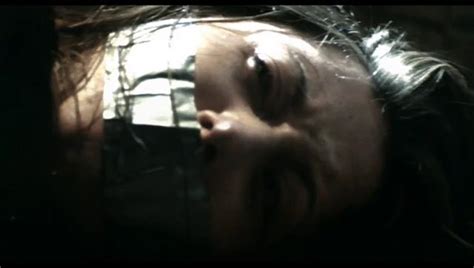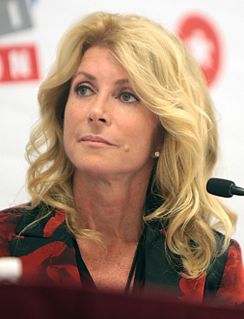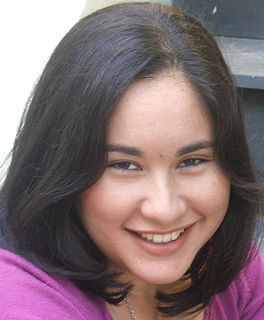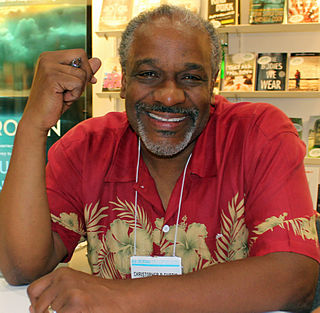A Quote by Judi Dench
I feel with this film that as long as we tell Philomena's story and as long as we're true to her, which Jeff and Steve have already done by writing the story... we must not sell her short;. She's a most remarkable woman and all my concern was that we must be absolutely true to her story.
Related Quotes
One day I'll give birth to a tiny baby girl and when she's born she'll scream and I'll tell her to never stop I will kiss her before I lay her down at night and will tell her a story so she knows how it is and how it must be for her to survive I'll tell her to set things on fire and keep them burning I'll teach her that fire will not consume her that she must use it
You must learn her. You must know the reason why she is silent. You must trace her weakest spots. You must write to her. You must remind her that you are there. You must know how long it takes for her to give up. You must be there to hold her when she is about to. You must love her because many have tried and failed. And she wants to know that she is worthy to be loved, that she is worthy to be kept. And, this is how you keep her.
Mine is a story about a teenage single mother who struggled to keep her young family afloat. It's a story about a young woman who was given a precious opportunity to work her way up in the world. It's a story about resiliency, and sacrifice, and perseverance. And you're damn right it's a true story.
Woman must come of age by herself. This is the essence of 'coming of age'-to learn how to stand alone. She must learn not to depend on another, nor to feel she must prove her strength by competing with another. In the past, she has swung between these two opposite poles of dependence and competition, of Victorianism and Feminism. Both extremes throw her off balance; neither is the center, the true center of being a whole woman. She must find her true center alone. She must become whole.
Vera said: 'Why do you feel you have to turn everything into a story?' So I told her why: Because if I tell the story, I control the version. Because if I tell the story, I can make you laugh, and I would rather have you laugh at me than feel sorry for me. Because if I tell the story, it doesn't hurt as much. Because if I tell the story, I can get on with it.
Director Park always talked to me about her in a very innocent way, that the story was of her coming of age and her sexual awakening and her going from girl to woman and that she had the same desires and hopes as other young people in terms of being very infatuated, which comes in the form of her uncle, which is very unconventional.
It's great to create a story and then to submit it to your editor and see what her reaction is to it. It's great to have your editor tell what her suggestions and ideas for the story are. It's great to explain to your editor why her ideas and suggestions are bizarre and to ask her why is she trying to ruin my story.
